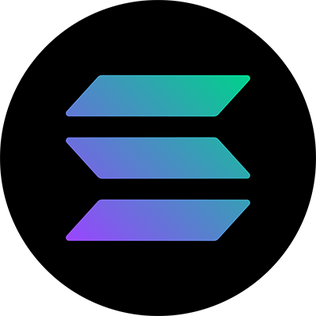
Bitcoin is the first decentralized cryptocurrency. Based on a free-market ideology, bitcoin was invented in 2008 by Satoshi Nakamoto, an unknown entity. Use of bitcoin as a currency began in 2009, with the release of its open-source implementation. In 2021, El Salvador adopted it as legal tender.

Ethereum is a decentralized blockchain with smart contract functionality. Ether is the native cryptocurrency of the platform. Among cryptocurrencies, ether is second only to bitcoin in market capitalization. It is open-source software. Ethereum was conceived in 2013 by programmer Vitalik Buterin.

Solana is a high-performance blockchain designed for scalability, offering fast transactions, low fees, and robust smart contract capabilities. Utilizing a unique Proof-of-History (PoH) consensus combined with Proof-of-Stake (PoS), Solana can process thousands of transactions per second, making it a leading choice for DeFi, NFTs, and Web3 applications. Despite periods of network congestion and competition from Ethereum and Layer-2 solutions, Solana continues to grow, attracting major developers, institutional investors, and a strong community backing its ecosystem.

Cardano is a decentralized blockchain platform known for its research-driven approach and focus on scalability, sustainability, and interoperability. Built on a unique proof-of-stake consensus mechanism called Ouroboros, Cardano offers a secure and energy-efficient alternative to traditional proof-of-work blockchains. Its layered architecture separates smart contracts from settlement layers, enhancing security and flexibility. While adoption has been gradual, Cardano continues to evolve, with ongoing upgrades like Hydra scaling solutions and growing use cases in DeFi, identity verification, and global finance.










